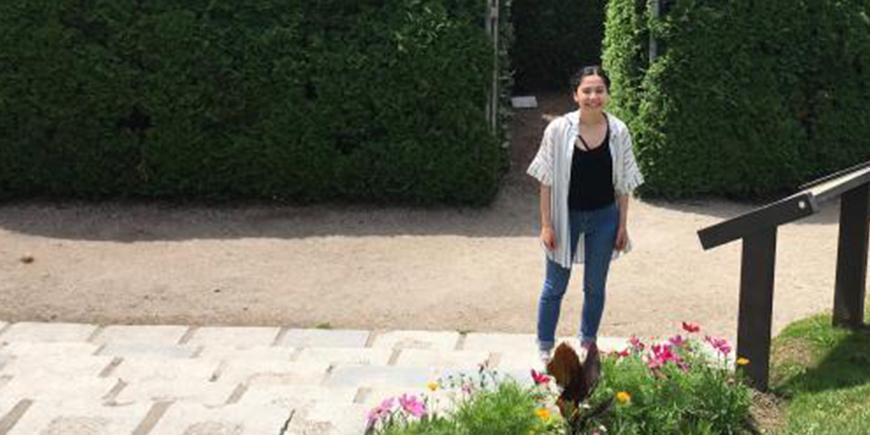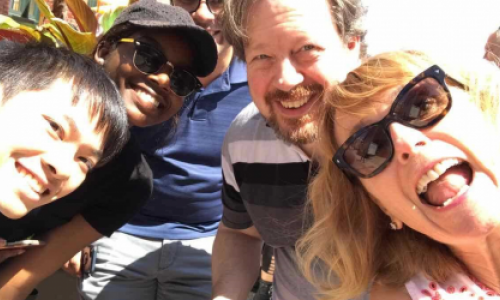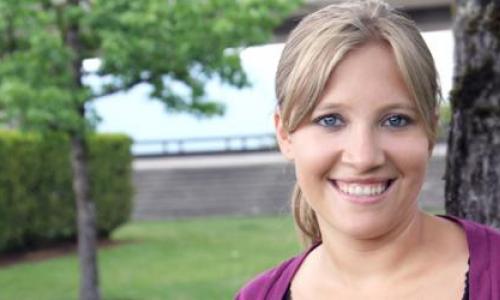
My co-op at BC Children’s Hospital as a research assistant has been an amazing learning experience. The research program at the orthopedic clinic in which I was enrolled, is very evolved and engaged. Multiple research projects and studies are run by the principal investigators with the help of research managers, coordinators, and research assistants. For the past eight months, I have been a part of the spine research project run by Dr. Firoz Miyanji. As the Principal Investigator (PI), Dr. Miyanji has multiple studies related to spine disorders. The largest project is a multi-center study focusing on the treatment of Adolescent Idiopathic Scoliosis (AIS). Managing this study, alongside other projects, has been a major learning experience and I have improved on skills that I otherwise would not have in school. Here are five lessons I learned while working in the orthopedic clinic:
Stay organized
During my co-op as a clinical research assistant, I learned that there is a lot of work that goes into running a research project smoothly. From the initial research idea to the final process of getting the work published, the amount of detail that needs to be invested in a project is simply overwhelming. Therefore, the organization is instrumental in keeping up with all the work that comes with such intensive research!
In my first couple of months, I was finding it difficult to manage six different studies, particularly the large multi-center study, in which there are many research participants to keep track of, just within the Vancouver site. Despite my best efforts to handle all the projects, I still felt as though my work was piling up. I decided that there had to be a better and smarter way for me to manage everything. So, I re-organized the current projects, previously operated by prior research assistants, in a way that made more sense to me in order to better manage the data. I learned that everyone works differently and considering that I will be in this position for twelve months, I should find a way that works best for me.
I was thus given the freedom to use my own system in organizing and keeping track of all participant data. It really helps to complete all my tasks, meet deadlines, and stay on top of managing multiple projects. I recommend co-op students to use whatever system works best for them to organize all the daily tasks and to tackle them all, one at a time.
Take advantage
In clinical research, focusing on the little details can sometimes overshadow the important “big picture” of it all. One (of the many) things that I have learned from my supervisor is to not get caught up with all the minuscule aspects of research. While it is still crucial to be as detail-orientated as possible when working on a project, looking at things holistically is also important. I am not saying to completely disregard the minor elements of a research project, however, don’t get too caught up and take the opportunity to really learn from all the expert researchers around you! Try to take a step back and look at the larger picture and the details will eventually fall into place.
I have the chance to work with brilliant researchers every day in a facility with such an evolved research program. There are many lectures, tutorials, workshops, and resources available through the BC Children’s Research Institute that I have been able to attend. I highly recommend co-op students to use all the opportunities and resources available to them in any workplace.
Also, for anyone looking to do a co-op in clinical research, remember that there is a lot of room to grow and expand your responsibilities when you feel that you can take on more. This is probably one of the greatest opportunities that an undergraduate student can get in terms of applying and growing their practical knowledge.
In conclusion, try not to lose sight of the bigger purpose and goals of the research as this may hinder your learning opportunities. The clinical studies at the Spine Research Team ultimately investigate ways to improve the quality of care for individuals suffering from spine conditions and diseases. Therefore, as my supervisor would say, “try to remind yourself of the “big picture’”. This is, without a doubt, one piece of advice that will really stick with me as it is applicable to not just my co-op job but my study and future career.
Maximize your time
As I mentioned earlier, there are multiple steps involved in the process of developing an idea or question to tangible research that can be published in a journal. This requires a lot of trial and error which is, without a doubt, a lengthy process. While there are times when all the responsibilities can pile up and seem overwhelming, I have found that there is a lot of waiting involved before I can proceed with a task as they’re interdependent.
In addition, seeing research participants in the clinic is also a time-consuming process. Therefore, I highly recommend maximizing all the time you have throughout the day to get multiple tasks completed. As a research assistant, tasks are constantly delegated to you, and so it is up to you to prioritize and complete them. For example, a suggestion is to work on tasks that do not necessarily require assistance from your supervisor while there is a lag in work. This way you are making good use of your time, and you learn that you can get a lot done independently!
Be independent AND be a team player!
Managing multiple projects and studies, there is no shortage of tasks for me to complete. Even during times when I am not assigned tasks from my supervisor, there are plenty of assignments, ex. data filing or organize data excel files, to work on independently. Moreover, I am required to coordinate or assist other study sites from different hospitals collaborating with us on projects or tasks. In such situations, it is expected of me to be comfortable in collaborating and communicating with other research coordinators in addition to working independently a lot of the time.
From my experience, working with minimal instructions from my supervisor was overwhelming at first. However, I found that by tackling new assignments on my own, I was able to learn a lot. The same is true for working with research coordinators from other sites. Many of these individuals dedicate hard work into their projects and have a lot of expertise in their research areas. Therefore, I recommend asking for help or advice from the people you work for during your co-op because they are always willing to assist. This will make working on new assignments less daunting and the learning experience more enriching!
Remember to have fun!
Now eight months into my co-op, it surprises me how quickly time has gone by. I am glad I was given an amazing opportunity to learn as much as I have. In my opinion, one of the benefits of doing an eight or twelve-month co-op term rather than working for just four months is that there is a ton of room to grow and expand your learning without having to go through the training and adjustment phase every few months.
Apart from the practical application of concepts and knowledge it provides, a co-op gives you an opportunity to enhance and develop skills you may otherwise not learn in an academic setting. During my time as a co-op student, I have had the opportunity to meet many kind individuals with diverse backgrounds, and I have been able to form great professional relationships with these individuals who continue to teach me so much.
My last piece of advice is to remember why you are doing a co-op and enjoy it while it lasts! From what I have learned in my field is that the learning experience that actual clinical research provides surmounts many aspects of the experience an undergraduate education provides. Therefore, take the opportunity to challenge yourself and figure out if it is a field of work that you would want to pursue.















